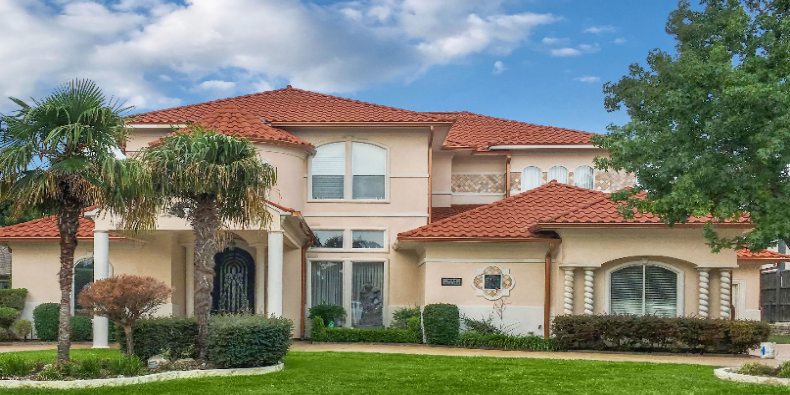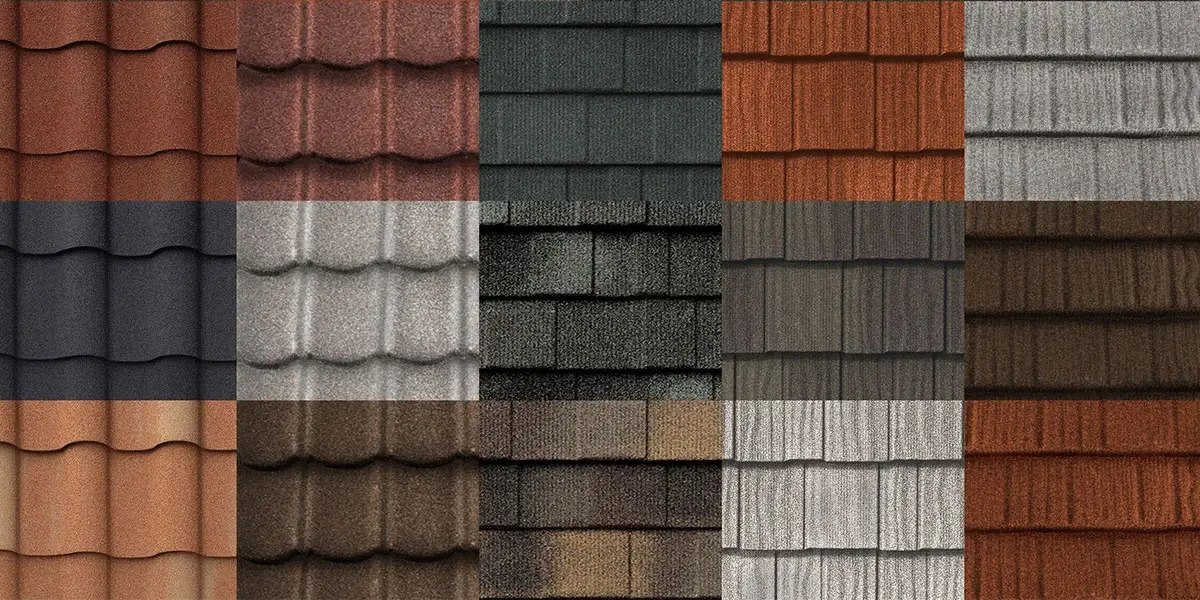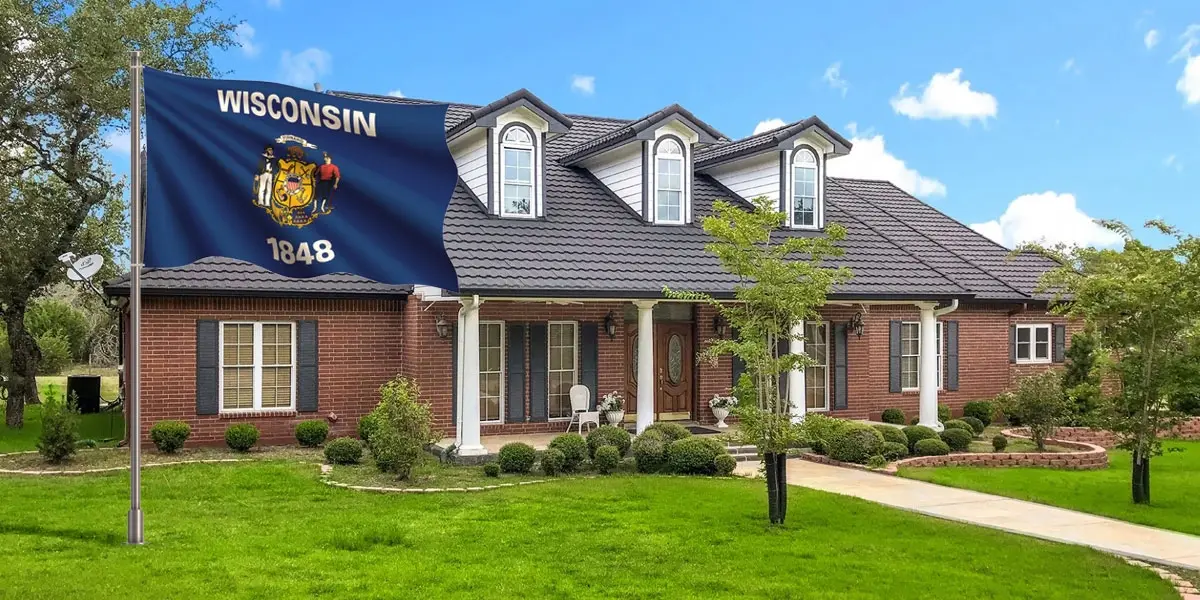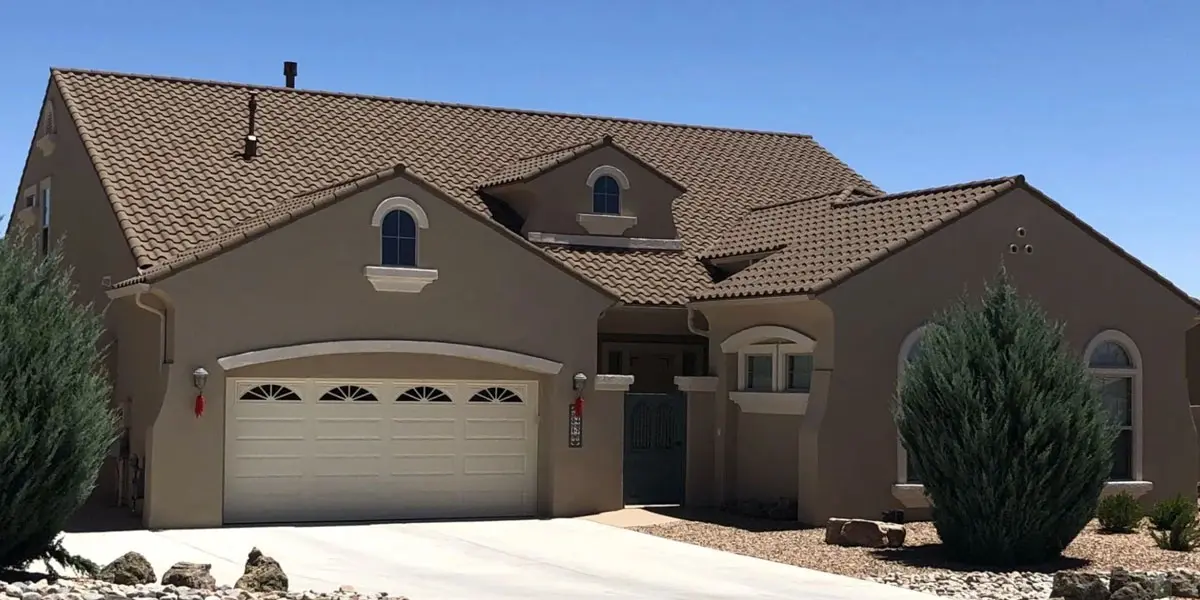When it comes to choosing the best roofing material, Florida homeowners need to consider a wide variety of weather events and climate conditions, including:
- Tropical storms and hurricanes. Even without direct landfall, a hurricane's outer bands can spread hundreds of miles and damage roofs with wind and hail.
- Tornadoes. Florida ranks high alongside Oklahoma and Nebraska for annual twisters. Even localized thunderstorms are forces to be reckoned with.
- Freezing temperatures, snow, and ice, especially in the north-central and panhandle regions.
- Fires that destroy thousands of acres of Florida's wild land each year. With many Florida homeowners now established — or planning to build — in what was only recently wild land, the risk of homes burning during wildfires increases.
- Heat and humidity plus freeze and thaw cycles which can stress structural elements of a roof.
So, what is the best roofing material for Florida homes? Let's look at traditional roofing materials first.
The Trouble with Traditional Roofing in Florida
Traditional roofing materials such as asphalt shingles, clay tiles and wood shakes have some advantages, but their short lifespans, fragility, and high maintenance are serious drawbacks for homeowners in Florida who need protection from a wide range of elements.
Asphalt Shingles
Asphalt shingles are the most common type of roofing material because the initial cost of installation is one of the cheapest on the market. But, it’s important to note that you get what you pay for, and, given the challenges of Florida’s climate, an asphalt roof may not provide the durability and longevity that you’re looking for.
The lifespan of traditional asphalt shingles is approximately 12 to 20 years when installed correctly. Lifespan estimates for roofing, however, don't always consider Florida's climate and weather variations. In fact, some asphalt warranties offer only ten years of coverage and some manufacturers charge for warranty coverage.
One of the major problems with some asphalt roofs is that moisture retention can cause mold and algae growth. If not remediated, the roof (or sections of it) may need replacement long before the end of its expected lifespan. They're also heavy, even more so with moisture absorption, which can stress the existing roof deck.
Asphalt shingles are also prone to warping, curling, cupping, and losing the top layer of mineral granules (you'll find them in gutters and at the base of downspouts). Worse, repeated exposure to strong wind along with other stressors can cause loosening, which can result in shingle loss, especially in areas with high winds.
Another factor to consider is energy efficiency. Given Florida’s hot and humid climate, it’s worth noting that asphalt shingles are one of the least energy-efficient roofing materials. They absorb heat like a sponge and radiate heat into the home long after the sun goes down.
Clay Tiles
Clay tiles, in various forms, have been in use for about 10,000 years. It's an elegant roofing option, especially for Mediterranean-style homes along the Florida coast.
But a roofing material that works well in a hot, dry Mediterranean climate like that of Italy or Greece is not exactly suitable for Florida.
Clay tiles are extremely fragile and require rigorous maintenance, plus they fracture and break easily. Repairs and maintenance aren't simple either since merely walking on a clay tile roof can cause damage.
Since clay tiles are so delicate, very few manufacturers provide any type of warranty for wind or impact-related damage.
Clay tile is also extremely heavy and absorbs moisture, up to 15% of its weight, in fact, which means your roof deck must be strong enough to support the initial weight of the tile, as well as the absorbed moisture.
Wood Shakes and Shingles
Wood shakes and shingles are similar except for the width and how they're cut. While wood roofs were once common, they've fallen out of favor with the proliferation of less expensive, more weather-resistant types of roofing. They're rarely used in Florida except in communities where an old-world, rustic look is desirable.
Weathering and fading (graying) occur rapidly, and wood requires regular chemical treatments plus cleaning to prevent mold, algae and bacterial growth.
Like clay tiles, they also require frequent maintenance. Expansion and contraction from humidity and cold-warm cycles along with cupping, splitting, and subsequent rapid drying can cause them to fracture and loosen from fasteners. This makes wood shake or shingle roofs prone to severe wind-related damage.
On top of that, a five-year warranty is standard which is of great concern to most property owners who are looking for a roof to provide protection for decades.
Modern Metal Roofing for Florida Homes
The shortcomings of traditional roofing materials make them less than ideal for Florida homes. Metal roofing, on the other hand, has the durability required to withstand nearly anything Mother Nature has to offer.
Industrial metal roofing systems, like standing seam or aluminum roofing, have been in use for over a century. Factories, military barracks, warehouses and other industrial buildings have benefited from the durability that only metal roofing can provide. But historically, homeowners were quick to dismiss industrial metal roofing because it lacked the aesthetic appeal required for most residential properties.
Today, modern metal roofing provides the protection and longevity of steel in a wide range of metal roofing choices modeled after traditional roofing materials.
Let’s take a quick step back to understand the term “model metal roofing.”
During World War II, a new roofing process emerged when the Decraspray Company developed a ground stone overlay to camouflage shiny metal barracks from German air raids. It was highly successful, and the overlay was so resilient that it was almost impossible to remove decades later. And when it finally came off, the underlying metal was like new despite constant exposure to fluctuating weather conditions.
The Decraspray Company, now DECRA Metal Roofing, saw that stone-coated metal roofing could bridge the gap between industrial durability and design versatility. They evolved and perfected the manufacturing process by adding stone coating over layers of high-grade steel to create a wide range of styles, textures and colors.
>>>Related Resource: Learn more about DECRA’s stone-coated granules.
Modern, stone-coated metal roofing provides homeowners with a long-lasting, durable roof without sacrificing on style. Metal roofing is now the second most popular roofing material in the country and continues to take market share from asphalt roofing year over year.
Keep reading to learn why metal is the best roofing material for Florida homes.
Metal Roofing is Engineered to Withstand Florida Weather
Protection from Wind and Storm Debris
The best roofing material for Florida requires a high level of wind resistance. Nearly every part of Florida experiences hurricane-force winds, making roofs extremely susceptible to damage from wind uplift.
As the term suggests, wind uplift refers to the separation of a roof's outer layers from the supporting structure or deck beneath it. A strong, ongoing wind creates air pressure shifts that generate friction and suction, separating roofing materials from the deck.
-1.png?width=571&name=DECRA%20Wind%20Uplift%20Graphic%20Final%20Transparent%20wBackground%20(1)-1.png)
As mentioned earlier, traditional roofing materials are prone to wind uplift. Asphalt and wood shingles tend to crack and split around the fasteners, leading to the loss of shingles and even the entire roof blowing off. Wind uplift is also a high risk for clay tile roofs, and one of the main reasons that few tile roofing manufacturers provide any type of wind warranty.
Even if hurricane landfall is unlikely in your area, tropical-storm-force winds can extend for hundreds of miles, turning debris into missiles that can damage traditional roofs.
Modern, stone-coated metal roofing products from DECRA Metal Roofing are engineered to withstand nearly anything Florida weather has to throw at it (literally). The unique interlocking system is secured with corrosion-resistant fasteners for one of the highest wind uplift ratings in the industry and comply with high-velocity hurricane zone requirements, including those of Miami-Dade, Florida, which has some of the strictest roofing requirements in the nation. DECRA Metal Roofing products also protect against impact from storm debris, hail and wind-driven rain. All of our products carry the:
- Highest Class 4 Hail Impact Rating
- Lifetime Limited Warranty that covers hail penetration up to 2.5 inches in diameter and winds up to 120mph (lab tested at twice that velocity).
Protection from Wind-Driven Rain
While wind is a challenge in and of itself; a downpour is another. Combine the two with traditional roofing materials, and you may find unexpected damage to your roof.
When a roof is vulnerable to wind uplift, strong winds can drive rain between the roofing material and the deck. Even if a roof survives with no obvious exterior or interior damage, it can be weakened. A closer inspection may reveal cupping, cracking, and curling in asphalt and wood shingles and shakes, and clay tiles may fracture or break.
DECRA products are engineered and tested for wind-driven rain at 110 miles per hour to prevent wind uplift and rain.
Protection from Fire
Fire destroys thousands of acres of Florida's wild land each year. With many Florida homeowners now established — or planning to build — in what was only recently wild land, the risk of homes burning during wildfires increases.
Although landscaping and vegetation around a home can be a severe fire-safety concern, a home's roof is one of the most vulnerable areas.
It’s important to note some of the limitations of traditional roofing materials when it comes to fire. Clay tile roofs are non-combustible, but total fire resistance depends on the rating of the underlying structure since wind can drive sparks between the roofing material and the deck. Certain types of asphalt shingles are also fire resistant, but again, resistance depends on underlying structures. And wood shingles or shakes can easily ignite.
DECRA metal roofs are a Class A Fire Rated Material. That means they're non-combustible and ignition-resistant, plus they protect against flame penetration to the deck and attic. To achieve this rating, the roofing must be tested in normal conditions with standard installation; special chemical treatments or additions to the underlying deck are not permitted.
>>>Related Resource: Learn why metal roofing is one of the best materials for protection from fire.
Energy Efficient Metal Roofing for Florida Homeowners
Protection from the elements is just one of the benefits of metal roofing. Most people are surprised to learn that metal roofs are also one of the most energy-efficient roofing materials available. This can be extremely beneficial for Florida homeowners looking to keep their homes cool during the hot and humid summers.
Metal roofs reflect heat up and away from the home or building.
To illustrate this, think about the metal hood of your car. The metal hood cools quickly once the car is parked and the engine is off. Even with the heat from the sun and the engine, the hood of the car is cool to the touch in just minutes because metal dissipates heat so well.
Traditional asphalt roofs, on the other hand, absorb heat and radiate the warmth down into the building below, even after the sun has gone down.
A 2019 R&D Engineering report compared the energy efficiency of DECRA metal roofs against conventional 3-tab asphalt shingle roofs. The result? DECRA Metal Roofing products increased energy efficiency by up to 218%.
And while industrial metal roofing is also energy efficient, DECRA stone-coated metal roofing takes energy efficiency a step further. The infrared-blocking color pigments in DECRA’s stone-coated granules improve thermal performance with their ability to re-emit up to 90% of solar radiation to the atmosphere rather than the building below.
The energy-efficient properties of metal roofing can even lower attic temperatures by 69% when compared to asphalt shingle and reduce cooling costs by up to 25%.
>>>Related Resource: Learn more about the energy-efficient properties of DECRA Metal Roofing.
DECRA Metal Roofing for Florida Homes
If you’re looking for a roof that can withstand the diverse weather events and climate conditions of Florida without sacrificing on style, then you’re looking for a DECRA metal roof. Want to see how a DECRA roof looks on your home? Upload a picture of your property to our Virtual Roof Designer to find the perfect style, texture and color for your home.







